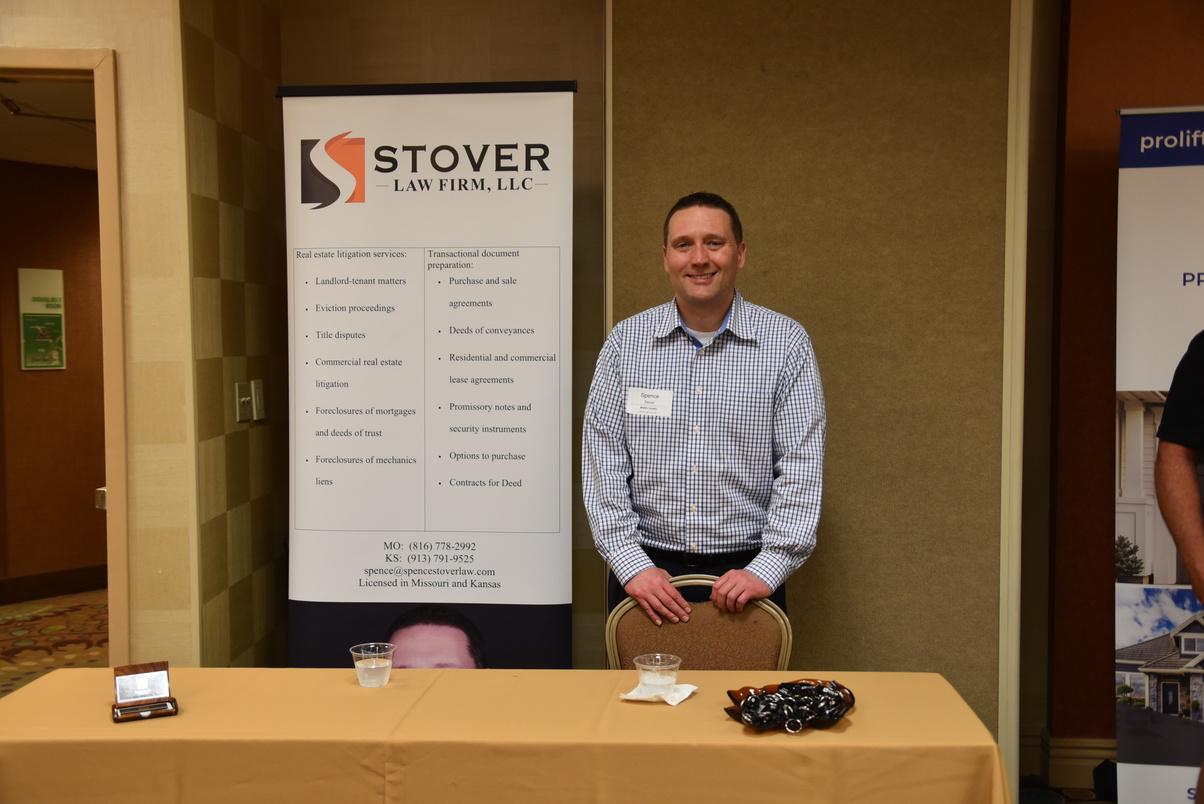MAREI
MID-AMERICA ASSOCIATION OF REAL ESTATE INVESTORS
JEFFWATSON JEFFWATSON



LEARN MORE

As the areas only Chapter with National REIA, MAREI brings you money saving discounts from many National Companies like Home Depot, Office Max, Office Depot, Rent Perfect and REIPro Make sure you are getting the most out of your membership


MAREI Meeting
Good, Bad & Ugly of Sub To
Jeff Watson August 19
Jeff Watson is an Ohio attorney who has had an active trial and hearing practice for over 30 years. His focus is on real estate investing, wealth building and asset protection. He has also been investing in real estate since 1994 in both residential and commercial properties. He has been through multiple market cycles.

He is on the board at Quest Trust Company, general counsel to National REIA and also counsel to Realeflow and he advises 5 different national traing organization including Noteschool
He is also busy lobbying on the industry's behalf in Washington DC and has brought about several changes in government regulation and policy.
All of this combined gives him unique knowledge and experience in many real estate investing niches including short sales, wholesales, mortgage notes, wraps, subject to and self directing.
We have asked him to bring his unique knowledge of creative deal making and mortgage notes to make sure we know when and how to use subject to as a tool to make real estate investment profits and when some other tool might be a better option. He will be live in person at our monthly meeting and virtual in the follow up workshop Get the details at:
MAREI org
12
SEPTEMBER MAREI MEETING REOs & Lease Options
Find all of the following on our Calendar
Monthly Event's Carrot Challenge
Landlords of Johnson County
Virtual Live - REOs & Lease Options


MAREI Meeting
Northland Real Estate Investors
KC Lend's White Board
Eastern Kansas REI
Landlords Inc
Weekly
Home Resource Network - Tuesdays
WinVestors - Wednesdays
Cashflow Game Night - Thursdays
PROP-erty Shop - Thursdays
Register for MAREI Events and Link to Outside Events Hosted by Members of MAREI at MAREI org/Calendar
Do you buy Subject To?
Do you want to?
'Subject to' investing is a real estate investing strategy that involves purchasing a property "subject to" the existing mortgage This means that the seller's mortgage remains in place, and the buyer takes over the payments, while the title of the property is transferred to the buyer 'Subject to' investing requires little to no upfront capital investment, making it an attractive option for those looking to get into real estate investing or for investors looking to grow their portfolios quickly.
One of the main advantages of 'subject to' investing is the low upfront cost.
Since you're not obtaining your own financing, you don't have to come up with a large down payment or pay closing costs This makes it easier for investors to acquire properties quickly

Another advantage is potentially higher returns Since you're not paying interest on your own mortgage, your cash flow can be higher Additionally, buying and holding a property to avoid being taxed at your current rate or paying shortterm capital gains rates can save you a lot of money in taxes
Imagine earning up to $40,000 per year in spendable, potentially tax-free dollars. What would that mean for you or your family? This strategy allows you to grow your wealth even during a downturn in the market, making it a smart choice for savvy investors. With the right knowledge and resources, you can leverage 'subject to' investing to achieve financial freedom and security
While this is a gigantic opportunity, you
do need to be fully aware of the pitfalls Jeff Watson our guest speaker for August here at MAREI shares
The last time Subject To was the “hot” way to do deals was in the 1990s and 2000s. Then we hit the mortgage market meltdown in 2008 and with that came a lot of new rules and regulations that often come into play when you are buying homes subject to. Often we will be working with home sellers who are in default or right on the edge of default, and often with federally backed loans, and screwing things up could blow up the deal, earn you huge fines,
you to jail.
While we can’t cover everything in a short newsletter article, we are going to cover some of the top issues that Jeff Watson shared in a presentation at NoteSchool a few months ago These are areas we see people having questions about that many speakers gloss over or teach incorrectly We hope you will take notes here and join us at the MAREI in August to learn more from Jeff’s meeting presentation on the 8th and workshop on the 19th
These are federally backed loans that many borrowers turn to as first time home buyers. And while they can get a 2nd or 3rd FHA or VA loan, they can’t do multiple loans at once. So if you take over an FHA or VA loan and intend to leave it in place until paid off via rents from a tenant, you run the risk of your seller tripping you up They get their act together and get ready to buy a new home with a new FHA or VA loan and get told no because the loan you have still exists This might just be the red flag the lender needs to exercise their rights under the due on sale clause and call the loan due
Unless you have the cash in the bank or a private lender who can step in to pay off the Subject To loan, avoid these loans for Subject To . . use some other method to acquire the property.
Quite often a seller who becomes motivated enough to call us and who will be willing to entertain our subject to pitch are quite often behind on payments Some might also be in foreclosure There are two topics here that you need to be aware: Loan Modification and Foreclosure Rescue
Loan Modification
Some gurus teach that you for sellers
who are behind on payments that you should help the complete some sort of loan modification that will often extend the life of the loan and lower the payment Seems like a great idea on the surface, except that loan modification agreement probably has a place where the seller affirms that they are going to remain living in the home, something that will not happen when you take over the payments
Congratulations, you just helped the seller commit fraud
Now these don’t exist in every state, so do you research. First make sure you are working with a local attorney who is well versed in local foreclosure laws and who is also very familiar with subject to. They can help you through the process.
And make sure to join Jeff's workshop on the 19th as he is sure to cover several of the best options
Make sure you have a trusted private money partner to help you do these deals They can fund the cash needed to bring the loans current when they are in default for a piece of the deal And they can step in to payoff when a loan gets called due.
Next up is to make sure you get a LIMITED Durable Power of Attorney from your seller. It needs to be limited to just that piece of property and loan. It needs to be durable, meaning it will last for a long period of time Just remember that there is a fiduciary duty comes with that power of attorney You now have a fiduciary duty to act in the best interests of your seller, which means you need to put their needs ahead of your own
The most common use for this limited durable power of attorney is to change the insurance on the property to a new insurance policy that will cover the home now that the seller no longer resides there and lists the seller as a 2nd insured Make sure to cancel the old homeowner insurance Then update all involved including the servicer so they stop paying the old insurance and start paying the new.
Investors stop making payments because they have bad cash-flow management. Or they don’t have the reserves needed to maintain the property or to cover when things don’t go quite right
A few investors think that they can buy a house subject to and then strategically stop making payments to put the home in default and then they attempt to negotiate a short sale with the lender Does not work
The investor does not make adequate disclosures to the seller as to what is happening. Then on down the road, despite the fact you talked about something with the seller, on down the road, they just might not remember. So make sure you have good disclosures in writing that the seller must read and sign off on Make sure they are clear and concise so that the seller and any judge down the road can read and understand
Here at MAREI we see a lot of people talking about doing creative deals and se see a lot more of them on the horizon We want to make sure that as an industry, that we are educating our members as to the best legal and ethical practices We can make great profits and build huge wealth while being an asset to our communities. And if you join us in August you will be off to a great start
See MAREI.org to get more info.



A federal judge ruled August 1st in a lawsuit against the City of Austin for its short-term rental (STR) ordinance prohibiting people from operating an STR without living at the property, which a Houston couple said unfairly prevented them from listing their Austin home, according to court documents.
On July 13, 2023, legislators in the U S House of Representatives reintroduced the Choice in Affordable Housing Act (H R 4606) to incentivize participation in the HCV program Sponsored by Rep Emanuel Cleaver (D-Mo) and Rep Lori Chavz- DeRemer (R-Oh)



The Biden Administration announced in Mid-July that it has enlisted the help of several real estate platforms in taking on so-called “junk fees” in rental housing in order to “lower costs for renters ” These partnerships include Zillow, Apartments com, and Affordablehousing com The statement concludes by saying that in the coming months the Biden Administration will work with Congress, state leaders, and the private sector to address these so-called “rental junk fees” in an effort to build “ a fairer rental housing market ” Stay tuned (read more)
In conjunction with the Seller Finance Coalition, HR 3464 the Affordable Homeownership Access Act has been introduced in the U S House of Representatives There is an additional effort to garner a sponsor or two in the U.S. Senate – calling on all Ohio and Alabama Investors to reach out to your Senator – they are key to moving this bill in both the House AND the Senate Please go to the Advocacy section of National REIA’ website for an easy way to reach your Senator!

Senate Bill 2224 to remove rental owner deductions for interest and depreciation for those who own 50 or more units
Learn More and take action on the MAREI Blog
We urge all readers to go to HomesGuarantee com and download their original briefing book and explore their website These are the people behind KC Tenants and similar groups across the nation
August 3rd, a group of 32 economist signed a letter supporting the use of rent control nationwide, joining a campaign from People's Action's Homes Guarantee Led by director Tara Raghuveer, the Homes Guarantee campaign to have the federal government regulate rents in buildings with government-backed mortgage
At the same time 17 senators sent a letter to the Federal Housing Finance Agency (FHFA) requesting a way to limit rental increases in apartment units that have mortgages held by Fannie Mae and Freddie Mac – roughly one out of every four U S units
8 tenant protections requested by Senators

Limiting rent hikes in properties with financing backed by Fannie Mae and Freddie Mac and full, upfront transparency regarding rents and fees that may be charged
Requiring good cause for evictions and lease non-renewals –and adopt a strong definition of “good cause, ” such as serious and repeated lease violations provable in a court of law.
Requiring owners to maintain housing that meets or exceeds standards for safety, accessibility and quality, including “prompt and effective remedies when safety or accessibility standards are not met ”
Comprehensive asset management procedures to ensure housing safety and quality
Enforceable protections against discrimination, notably those under the Fair Housing Act, and also discrimination based on source of income, and presumptive exclusion based on information in tenant screening reports, such as a prior eviction or credit score

Timely provision of any tenant screening report to applicants upon request
Property owner/manager information posted online to help ensure renters have access to their landlords
An enforceable right for tenants to organize, which includes forming tenant associations and tenant unions within their buildings and communities

Emeril can’t figure out where he made his mistake He thought he was getting a great deal when he bought a house and got a 10% discount However, he barely turned a profit on his investment
Julia also is completely stumped She bought a house with a 25% discount However, after selling the property, Julia lost money
Any cook can try to cover up a bad chicken with salt, pepper, oregano, lemon, paprika and more, but what do you have? Still a BAD CHICKEN DINNER.
In the same light, a real estate investor who starts off with too small a discount on their purchase, can try to make up for it after the purchase with hard work, fancy improvements, and eye-catching advertising However, what will they still have? Usually, they will still have a BAD INVESTMENT

So what are the right spices and seasonings (discounts) every gourmet real estate investor should know about? How should they be applied like gourmet chefs Emeril Lagasse and Julia Child?
There are four key spices and seasonings that every gourmet real estate investor should know about and understand how to apply. The four key discounts make up the Total Investor Discount and they are the:
Minimum Investor Discount
Repair and Improvement Discount
Negative Property Attribute Discount
Length of Time on the Market Discount
The first is the Minimum Investor Discount (MID), which is the minimum
profit an investor should receive from any real estate investment So, what is the minimum profit an average real estate investor should get? 10%? 25%? Perhaps 50%? More?
The answer is it depends on your real estate investment strategy
If your strategy is “buy and flip”, then all of your profits come from the difference in the Purchase Costs (purchase price, repair costs, marketing cost, holding cost, etc.) and the Sales Price. The differential is your only profit source. Because there is the risk that a property may not sell quickly, many “buy and flip” investors require a 25% or more Minimum Investor Discount.
If you’re going to use the “buy and hold” strategy, which usually means you’re going to rent your property, then you have access to multiple profit
sources. These investors have access to the same profit source as the “buy and flip” investors However, they make much of their profit over an extended period of time from rental payments, appreciation of the property, equity gains from paying down the loan with the tenant’s money, and tax write-offs The pure “buy and hold” landlord has a total of five “profit sources” Therefore, their Minimum Investor Discount can be as low as 5-10%
Finally, if you’re going to “buy and lease/purchase” your property, then you usually have access to the same five profit sources as the “buy and hold” investor. However, you also gain access to another profit source, option money (the lease/purchaser pays this for the right to buy your property at a later time). With lease/purchases, you need to keep in mind that your property may sell quickly and you may not have access to these other five profit sources Accordingly, “buy and lease/purchase investors” often need a Minimum Investor Discount in between the “buy and flip” and “buy and hold” discounts Therefore, they often need a Minimum Investor Discount of 10 –20%
Emeril and Julia both got reasonable discounts, 10% and 25%, respectively However, they did not make a satisfactory return on their transactions. What happened? Recognizing the appropriate Minimum Investor Discount for your chosen investment model is a good “first step”. Emeril actually received the right MID for his lease/purchase strategy….10%.
However, when the house took longer to lease/purchase due to some problems he failed to consider and the house sold one year later, he only made $1,000 Julia also got an even better discount 25% However, when it took her nine months to sell the property, she lost $10,000
So, where did they go wrong?
They used only one of the four spices and seasonings in the Total Investor Discount A successful real estate investor uses all four, as needed, to make sure their purchases are always savory
The second of the four key discounts is the Repair and Improvement Hassle (RIH) Discount The basic concept to understand here is that an investor should not complete repairs and improvements that the seller is either unwilling or unable to complete without additional compensation. The investor is assuming risk that the repairs and improvements might be more excessive and costly, the investor is paying the mortgage or finance costs while the repairs and improvements are being completed, and of key importance the investor’s time and energy to get these done has VALUE
The “rule of thumb” we use is an additional discount of 1% for every 3% of repairs and improvements as a percentage of the value of the property fixed up
Emeril’s property was worth $200,000 fixed up, and required $48,000 worth of repairs and improvements Therefore, for Emeri’s property, $48,000 of repairs equals 24% of the fixed up value. Repairs and improvements of 24% are fairly significant. Emeril had to bear a decent amount of risk, and likely spent a good amount of time managing his contractors. Accordingly, the additional RIH Discount should have been 8% (1% for every 3% or 24% / 3%).
Julia’s property had a fixed up value of $100,000 and repairs and improvements of $15,000 Here, the repairs and improvements represent 15% of the fixed up value, and her RIH% should have been 5% (15% / 3%)
The third key discount can be one of the trickiest Simply put, a Negative Property Attribute (NPA) is a problem with a property that cannot be eliminated with repairs and improvements A good example is a home without a basement, located in a subdivision where basements are common Another example is the first home in a subdivision that borders a main thoroughfare This home could be offered for free, and there are many families with kids who would still not even consider this home.
Attribute is often the main reason that a property is available at a discount. Therefore, if an investor does not in turn consider a proper additional discount to begin with when buying the property, they run a risk of severely impacting their profits and even losing money How does an investor account for Negative Property Attributes? The investor does this by asking a critical question: “how difficult will this attribute make it for me to rent, lease/purchase, or sell this property”?
Emeril’s property was missing a basement in a neighborhood filled with basements, so the NPA Discount should have been 3-5% Julia’s house bordered a busy street and was on a very steep hill, her NPA Discount probably should have been 6-8% (3-4% for the busy street and 3-4% for the very steep driveway). The more properties you work with, the more you will get comfortable with the appropriate additional NPA Discount specific for each investment
Can an investor simply decide to avoid properties with Negative Property Attributes? Sure, this is possible, but the main concern here is that this will reduce the investor’s pool of available investment properties Most of our best deals come from properties that have
The reason is that these attributes turned off most buyers, leaving investors who know what they’re doing as the most likely purchasers of these properties The key is not to avoid properties with NPAs, but rather to properly account for the NPAs within your Total Investor Discount
The final of the four key investor discounts is the Length of Time on the Market (LTM) Discount. The theory here is actually quite simple. The longer a home has been on the market, the more likely there are additional issues to deal with. For one, if the property has been vacant for a long period of time, it may have developed problems from lack of use (pipes may freeze over and spring leaks, lack of air circulation can cause molding, etc ) Additionally, the longer a property is for sale, the more chance that a negative reaction in the community becomes attached to it Accordingly, when you go to sell it, rent it, or lease/purchase it, you may have to discount it to overcome this bad stigma The good news is that it is often easier to negotiate big discounts on properties that sit on the market for long periods of time because their owners tend to be anxious to sell them.
So, how much additional discount should an investor get for a house that sits on the market for an extended period of time? Our “rule of thumb” is 1% for every month over two months up to 10%. What this means is that we’ve found that a typical residential property should get a contract on it within two months After that, the negative stigma begins to attach, vacant houses begin to suffer, and sellers (and their agents) become more anxious Commercial listings are generally longer and more complicated, so the investor often
should not begin adding 1% until after the 3rd or 4th month that the property has been on the market
Emeril’s property was on the market for four months, so he should have received an additional LTM Discount of 2% (for months number 3 and 4) Julia’s had been on the market for five months, so she should have received an LTM Discount of 3% (the steep hill and busy street we’re probably impacting it)
Now you know the special spices and seasonings to make gourmet real estate investments. When applying them, we simply add up the four discounts to determine the Total Investor Discount (TID) we need to make the property a winning investment. We then multiply this percentage times the Fair Market Value of the property in repaired and improved condition (based on comparable surrounding properties)
Emeril obtained a $20,000 discount on his investment that he valued at $200,000 (fixed up) However, he paid too much Yes, he got his MID of 10%, but he did not include the RIH of 8%, NPA of 4%, and LTM of 2% In actuality, his Total Investor Discount should have been $48,000 (24% x $200,000).
In the same light, while Julia got a $25,000 discount on her real estate purchase, she also paid too much. Yes, she received her MID of 25%, but did not get the RIH of 5%, NPA of 7%, and LTM of 3%. Therefore, her Total Investor Discount should have been $41,000 (41% x $100,000).
Now you might be asking yourself, what if my repair, improvement, and holding costs exceed my Total Investor Discount? The answer it doesn’t matter As an investor, you should be compensated additionally for these In
other words, the price you pay should not exceed the Fair Market Value (of the property in fixed up condition) minus all costs and your TID, what we call the Maximum Purchase Price or Ceiling Price If the price exceeds the Ceiling Price, then you’re likely making an unsavory real estate investment
Finally, Emeril and Julia’s properties may seem like more trouble than they’re worth However, when we see properties like theirs, we instantly begin to smell the simmering profits and prepare for another gourmet investment. This is because most buyers like properties with little or no problems. Therefore, sellers are usually willing to substantially discount them (if not immediately, eventually). Emeril and Julia may have been able to get the appropriate TID, if they had been patient (sometimes these negotiations will go on for months), and if not, they should have moved on to other properties As you can now see (or smell), we look forward to finding properties with problems and adding the right spices and seasonings (discounts) to cook up another gourmet investor meal
Good luck and happy cooking!
Heller and Frank are the co-authors of the best selling, Fortune Magazine recommended book Buy Low, Rent Smart, Sell High as well as the recently published book Buy Even Lower. They go into great detail on properly calculating Investor Discounts in their action program Buy Low, Rent Smart, Sell High – The Action Program, which along with other helpful resources can be found at www.RegularRiches.com.
Andy Heller will be joining us in Kansas City in September at the monthly meeting on the 12th and for a full day workshop on the 23rd
Accounting
Coleman Accounting Service
Bob Coleman ColemanAcctg.com
913-787-0308
Attorney
Anderson & Associates

Julie Anderson
MOKSLaw.com
816-931-2207
See site for Free Forms
Attorney Spence Stover StoverLawFirm com
(816)778-2992
Building Supplier

DeMayo Enterprises
Wholesale Cabinets
Mark Yanda
www DeMayoEnterprises net

913-980-4260
Earthwise of KC
Windows & Doors
John Norton
EarthwiseKC.com
816-316-3987
Home Depot
2% Rebate for Members
20% off Paint
www HomeDeopt com
Contractor
819 Consulting
Dale Scott & Kaytee Wolff
Design - Build - Consult www.819Consulting.com
816-441-9636
All Pro AC & Heating
Mike Stewart www.AllProACandHeatingLLC.com
16-210-0809
Hearth Masters
Fireplace / Masonry
Cleaning & Trash Out
Cleaning Maids In & Out
Veronica Bolton
(816) 659-2929
CleaningMaidsInandOut.com
Mid-America Dumpster
Cody Roberts
913-40-TRASH
Mid-AmericaDumpsters com
Gene Padgitt ChimKC com
816-461-3665
Olson Foundation Repair
John Murphy
(913) 592.3300
OlsonFoundationRepair.com/
Royal Seamless Gutter
Gutters, Roofing, Siding, Windows
David Miller
(913) 954-0157
Due Diligence
JurisDeed
Lydia McEvoy
(816) 560-5113
JurisDeed.com
Exchange
Heartland 1031 Solutions
Todd Welhoelter

Heartland1031Solutions.com
816-365-8010
Inspections
TritonPropertyConsulting
MichaelCoppoc
816-491-3483
MikeandZachInspectorscom
Insurance
MedMutualProtect
HealthInsurance
AuggieLange
785-764-3964
MillennialSpecialtyInsurance
formerlyArcana
InsuranceforInvestors
NREIA.ArcanaInsuranceHUB.com
877.744.3660
RauberInsuranceAgency
BrianRauber
LoveIsOurPolicy.com
(816)436-1016
RA-SelfDirected
CNBCustody
JennyHeiman
CNBCustodycom
800-680-0340
EquityTrustCompany

TrustETC.com/NationalREIA 844-732-9404
MainstarTrust
wwwMainstarTrustcom
JordanScafe
1-800-521-9897
Lending
CrossroadsInvestmentLending
HardMoney
BrittonAsbell
KCLendcom
913-295-8083
FinishLineFunding
ShortTermFunding
BruceBelanger
FinishLineFunds.com
913-346-8090
FlatBranchHomeLoans
MortgageBanker
BethLangston
ApplyWithBeth.com
816-679-4000
NewiecoCapital
PrivateMoney
JeffNewhard
(816)721-9869
Newieconet
MerchantsMortgage
MushyMoney
SusanAubin MerchantsMtg.com
913-522-2650
North Oak Investment
Bernie Richter
816-249-1001 x 402
NorthOakInvestment.com
Roller Mortgage Team LeaderOne
Alice Lund
www.RollerMortgage.com
913.488.1769
Marketing
Call Porter
Answering Calls 24-7 MAREI.org/CallPorter
Carrot
High converting websites
www.Carrot.com/MAREI
PropStream Build Marketing Lists & Research properties
www.MAREI.org/PropStream

REI BlackBook
Total Marketing Package Website, CRM, Tracking, More www MAREI org/REIBB
Office Supply
ODP Solutions
ODPBusiness.com

Log into MAREIMember.com for discount information
Property Manager
Brown Bear KC Real Estate Services
Tyler Shirk
BrownBearKC.com
816-465-1252
Dan Reedy Inc.
Dan Reedy
www MOREKC com
(816) 564-5265
Home Rental Services
Paul Branton
www.Home4Rent.com
913-627-9543
M & M Property Pros
Michael & Michele Belman
MMPropertyPros com
816-490-6745
PMI Destination Properties
Ryan Kernicky & Cory Brockert
913-583-1515
PMIDestination.com
Voepel Property Management
Brent Voepel
VoepelProperties com
816-405.4845
Property Management Software
Buildium
MAREI offers a FREE Trial
www MAREI org/Buildium





































